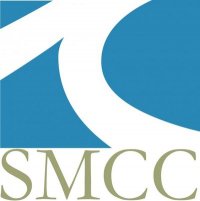Below is a summary of the abstract you submitted. Presenting author(s) is shown in bold.
If any changes need to be made, you can modify the abstract or change the authors.
You can also download a .docx version of this abstract.
If there are any problems, please email Dan at dar78@pitt.edu and he'll take care of them!
This abstract was last modified on March 22, 2024 at 2:48 p.m..

PensacolaC28 is a bacteriophage that infects the Microbacterium sp. strain Casco Bay, a marine host found in Maine. PensacolaC28 was collected from plants growing on Navarre Beach in Florida by students at the University of West Florida. The genome was annotated by the SEA phage group of Southern Maine Community College. Of the five bacteriophages known to infect M. Casco Bay, PensacolaC28 is the first phage that shows reduced infection efficiency on M. foliorum. PensacolaC28 is a singleton siphovirus most similar to clusters FE and GH with a genome that is 16,749 base pairs long and contains 25 genes. Twelve of these genes are orphams and are present in both the left and right arms of the genome. Bioinformatic analysis suggests a putative tyrosine integrase as well as an immunity repressor.
